First Deputy Chairman of the Verkhovna Rada of Ukraine, Oleksandr Korniienko, emphasized that charters for territorial communities are crucial in the context of decentralization reform, which is one of Ukraine's most significant achievements on the path to European integration.
He noted this during the presentation of the Methodological Recommendations for the Development of a Territorial Community Charter, organized by the Ministry of Community and Territorial Development of Ukraine in conjunction with the Ukrainian Center for Independent Political Research.
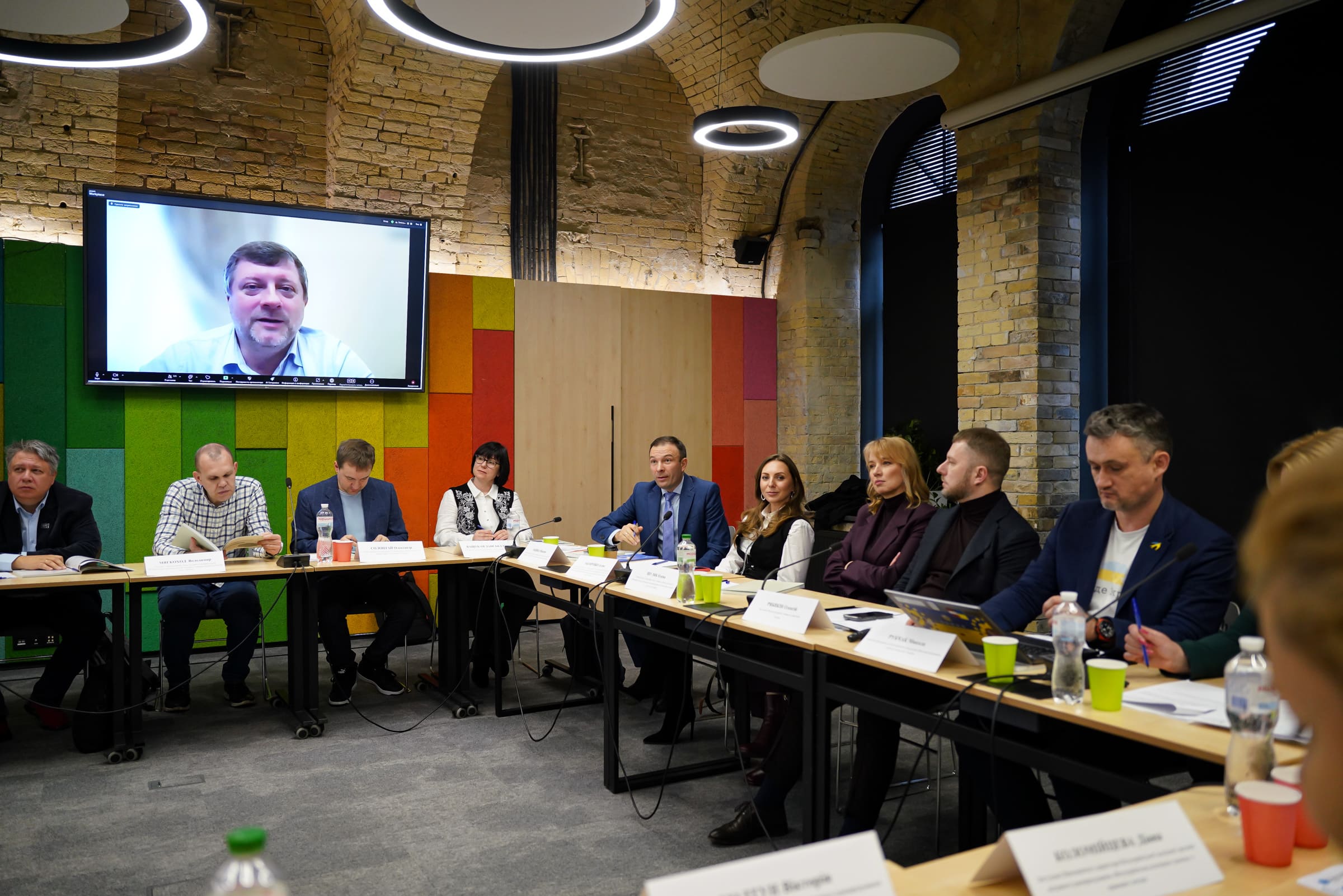
"The importance of community charters cannot be overestimated. It is clear that every community, even the smallest one in Kyiv, must have its own ‘constitution’, which will establish the foundations of life for that particular community within the framework of Ukrainian legislation," Oleksandr Korniienko emphasized.
He also noted the work of the relevant ministry, the working group, and the UCIPR experts in developing the document. The methodological recommendations are available on the UCIPR website.
According to Oleksii Ryabykin, Deputy Minister of Community and Territorial Development, the recommendations will help communities modernize their charters and bring them into line with modern standards of local self-government and European practices.
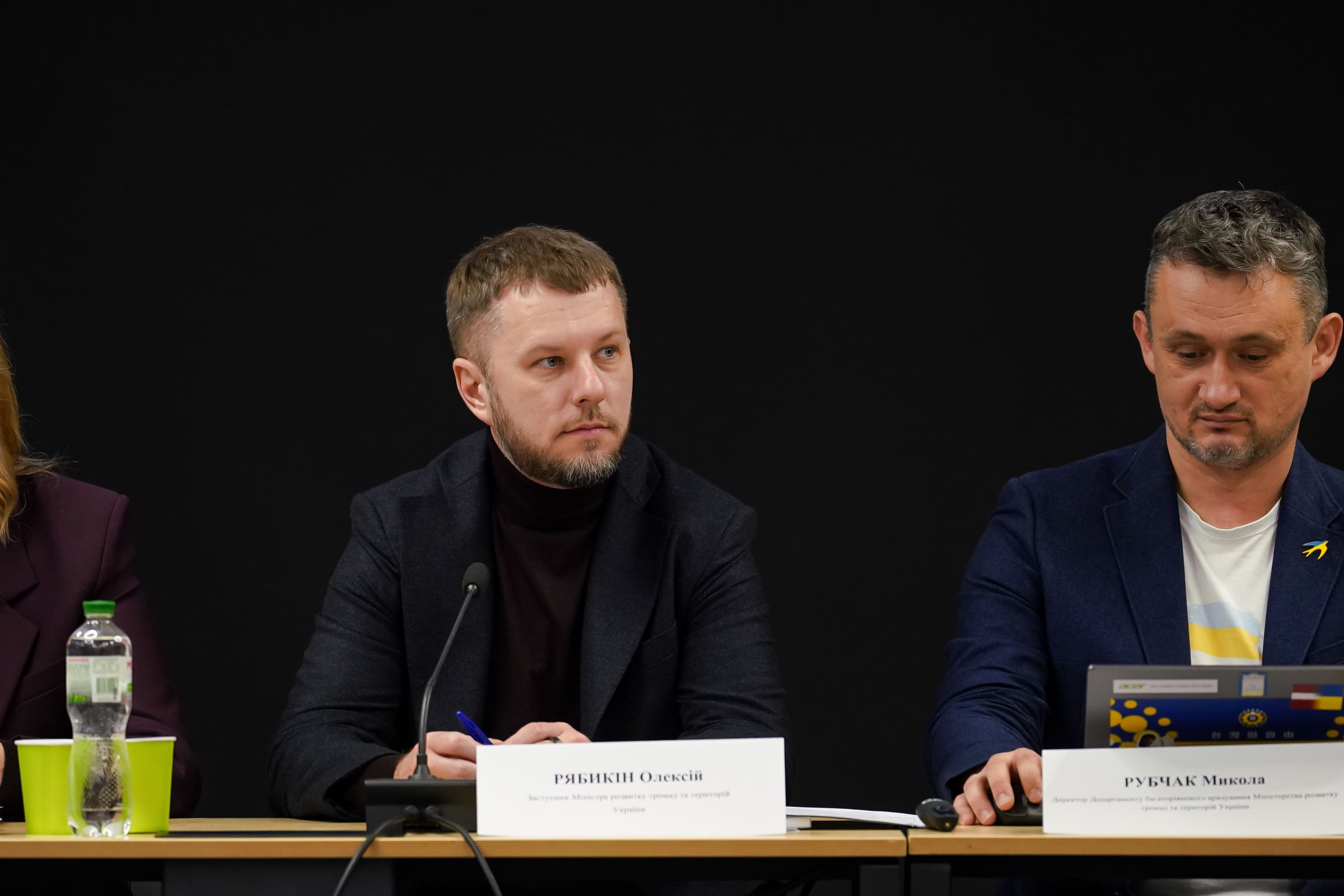
"I would like to draw attention to another important aspect regarding indicator 9. 2 of Ukraine's Plan within the Ukraine Facility program pointed to the need to adopt the Law of Ukraine “On People's Power at the Local Self-Government Level” and implement its provisions by local self-government bodies through the adoption of community charters aimed at regulating the procedures for interaction and dialogue between residents and local authorities," Oleksii Ryabykin added.
The Chair of the Verkhovna Rada Committee on Organization of State Power, Local Self-Government, Regional Development, and Urban Planning, Olena Shuliak, emphasized that the methodological recommendations address the decentralization reform and the actual influence of residents on decisions made in communities.
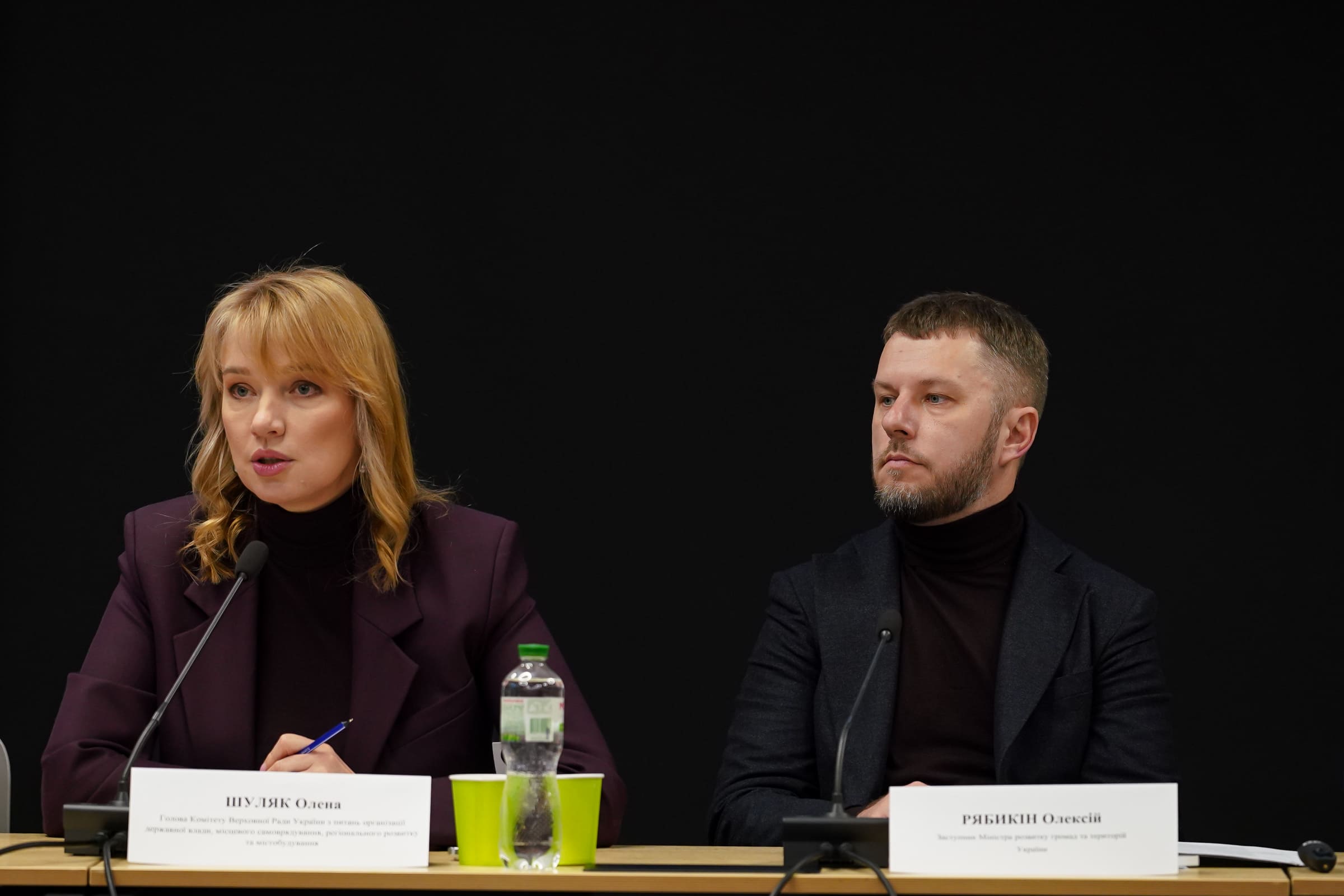
"We would very much like all 1,469 communities in Ukraine to already have their updated charters. We are delighted with the norms contained in the methodological recommendations. They concern the participation of young people in decision-making and raise complex issues, such as the reform of public investment from 2024," Olena Shuliak noted.
Deputy Chair of the Committee, Chair of the Subcommittee on Elections, Referendums, and Other Forms of Direct Democracy of the Verkhovna Rada Committee on Organization of State Power, Local Self-Government, Regional Development, and Urban Planning, Alina Zahoruiko, called the development of recommendations a logical continuation of many years of joint work by parliament, government, civil society, and international organizations:
"In fact, this is important work, and I am convinced that it will be useful to all local self-government bodies. Today, many communities, due to various circumstances, often lack the institutional capacity to write and develop relevant documents. Therefore, I am convinced that this work will help them."
She noted that despite the formal increase in resident engagement indicators, their participation remains critically low.

“The actual level of resident involvement remains critically low, at around 5%. In other words, on the one hand, we produce these tools and ask local authorities to provide them to citizens, but in reality, only 5% of citizens use them. This should be a continuation of our great joint work,” added Alina Zahoruiko.
Mykola Rubchak, Director of the Multilevel Governance Department at the Ministry of Community and Territorial Development of Ukraine, emphasized the role of methodological recommendations in shaping local identity and stressed that the charter aims to establish the identity of the territorial community.
He noted that the charter should regulate the forms of participation by residents, determine the procedure for using the instruments of direct democracy, and ensure openness and transparency of power, from general meetings to electronic petitions and public evaluations. At the same time, methodological recommendations serve as a vision, allowing representatives of local self-government to incorporate their own unique features into the charter, as all communities are distinct.
Oleksii Orlovskyi, Director of the Democracy and Good Governance Program at the International Renaissance Foundation, reminded that from now on, the adoption of the charter is the duty of each community, not a right:
"Indeed, in many ways, the charter is a strategic document, and we often forget about it. It is a document that defines certain rules within a specific community in many areas of its development."
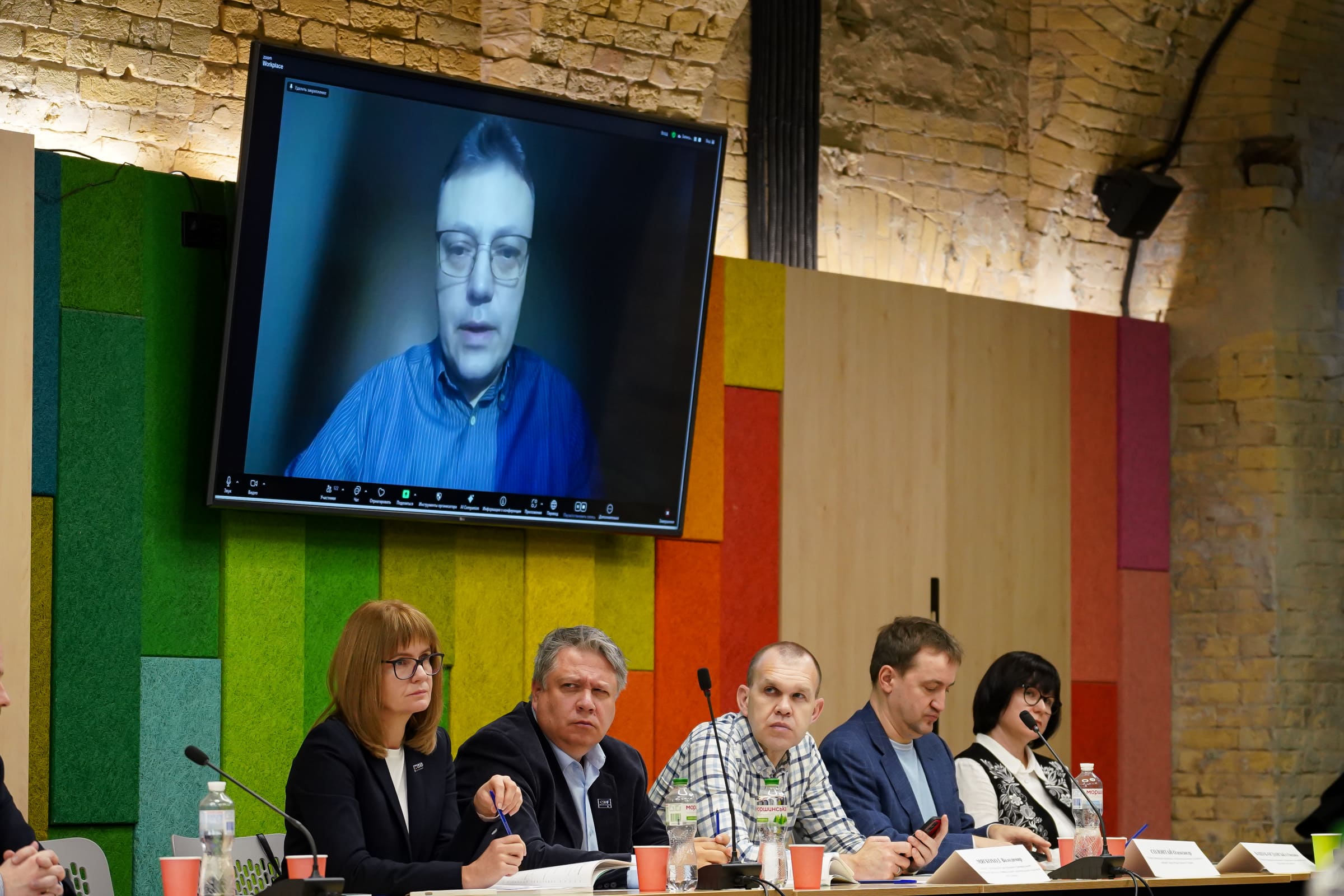
He emphasized that the International Renaissance Foundation has been consistently working on these issues.
"Last year and this year alone, we supported the process of developing charters for 53 territorial communities in Ukraine. In other words, we supported the opportunity for each of these communities to engage experts who can provide relevant recommendations and their vision...
The Foundation has already supported the next stage of this work. We have supported the UCIPR project, which aims to develop model provisions, model documents, and potential amendments to the regulations of rayon and oblast councils. This will be a logical continuation of the process that has now been implemented for local self-government at the so-called basic level," added Oleksii Orlovskyi.
Experts from the Ukrainian Center for Independent Political Research, who contributed to the development of methodological recommendations and actively participated in the drafting and advocacy of the Law of Ukraine “On Local Self-Government” (ed. – a law that obliges communities to update or create charters of territorial communities), presented the structure of the methodological recommendations and appendices to them.
Maksym Latsyba, Head of the Civil Society Development Program at the Ukrainian Center for Independent Political Research, presented the structure of the Methodological Recommendations in detail.
“There are actually four documents. The first document is a draft charter for a specific rural, settlement, or territorial urban community. It is 120 pages long. The second document is a recommendation for changes to the regulations of urban, rural, and settlement councils,” he explained.
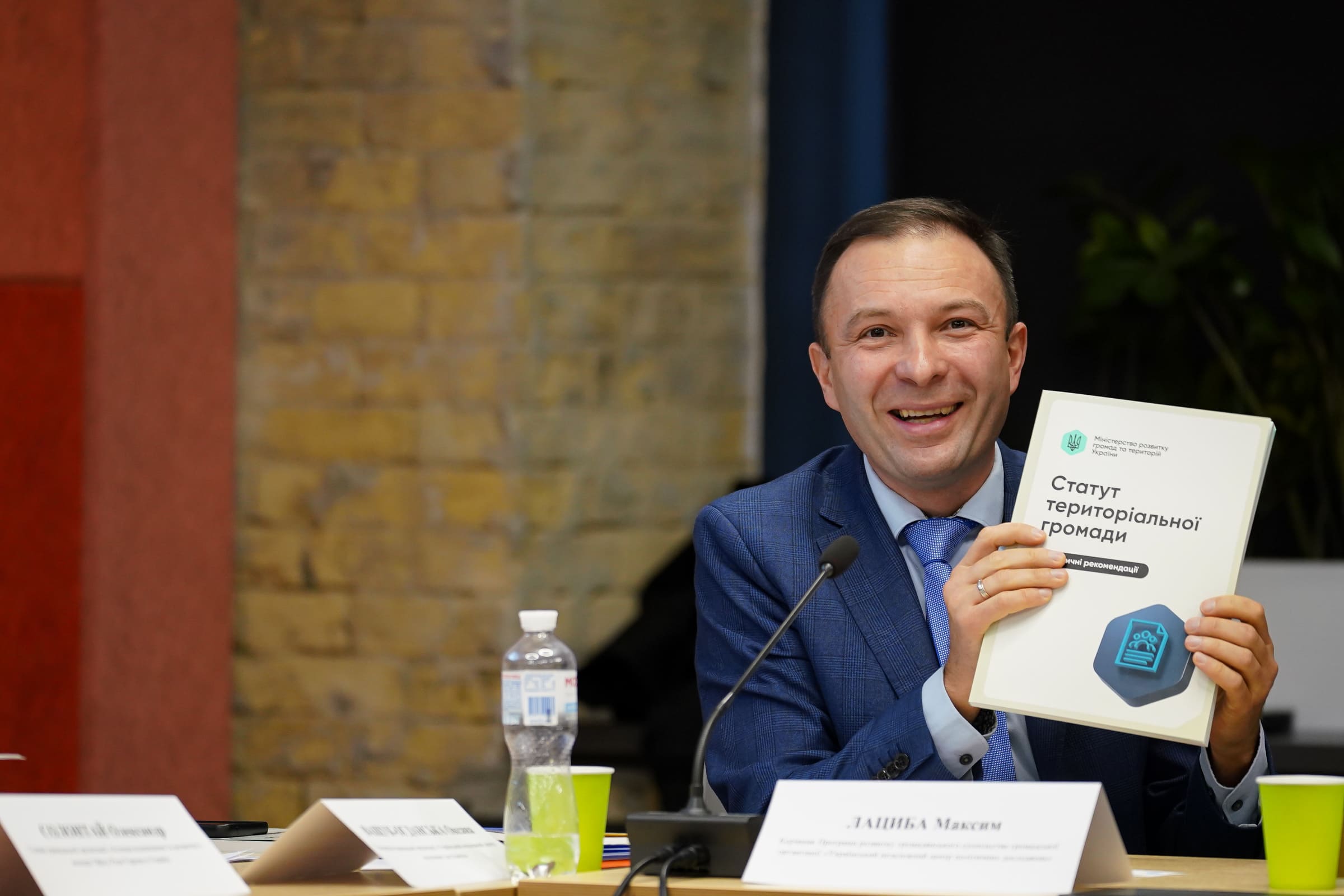
Separate sections are devoted to youth participation, public control, digital democracy, support for veterans, volunteering, public investment planning, and the affirmation of national identity:
"In my opinion, this is a good basis for the work of working groups in any territorial community... We very much hope that this will help each territorial community to prepare, adopt, and implement community charters by the end of 2026."
UCIPR expert Oksana Vashchuk-Ohdanska drew attention to four appendices to the charter, which detail the procedures for general meetings, local initiatives, public hearings, and public evaluation:
"We tried to write out a straightforward and accessible procedure from start to finish. Suppose a person is only interested in general meetings or only public hearings. In that case, they take one document and, from the first article to the next, everything is clear and, let's say, specifically implemented."
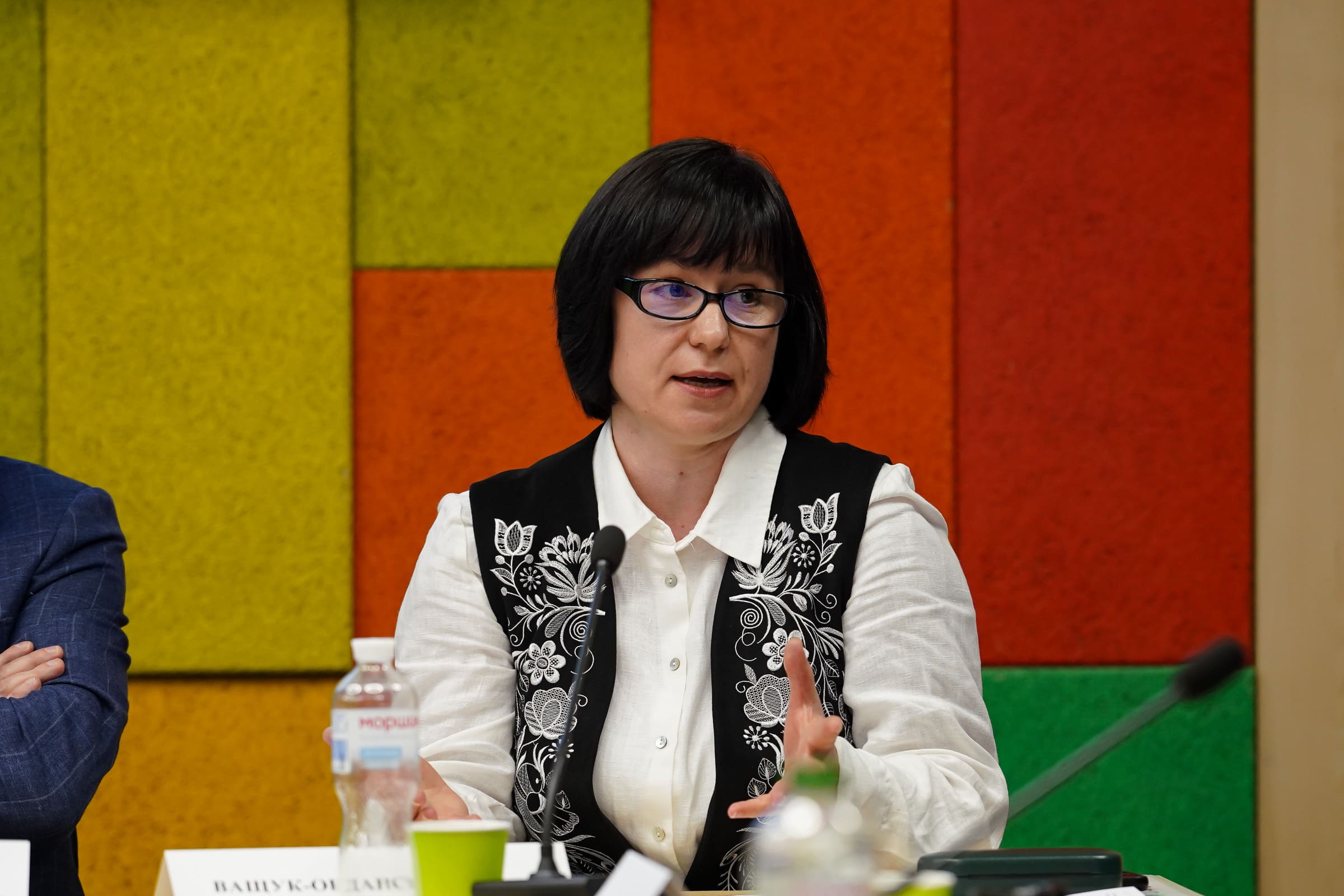
She emphasized that, at the same time, changes to the regulations of local councils have been proposed so that the provisions of the charter do not remain “on the shelf” but are actually applied in the work of councils, commissions, and during sessions.
Maksym Lukinyuk, an expert on the development of public participation mechanisms at the Ukrainian Center for Independent Political Research, noted that working on the charter will help communities feel unity and cohesion:
“In most communities where we worked with local governments, where working groups were created, where the public, experts, and deputies were involved, that is, a wide range of people, the communities existed for 5-7 years. However, they had questions about community holidays and their symbols.”

During the presentation, representatives of local governments also shared their own experiences in developing charters.
Members of parliament, representatives from government agencies, local government associations, public and international organizations, territorial communities, and relevant experts attended the presentation.
It is worth noting that between July and October, eight meetings of the working group under the Ministry of Community and Territorial Development of Ukraine were held, chaired by Deputy Minister Oleksiy Ryabykin. The group included representatives of the ministry, experts from public organizations and local government associations, specialists in public participation, and international partners. The working group reviewed proposals from interested parties and comments from the Ministry of Justice, the Cabinet Secretariat, and the Ombudsman. The document itself is the result of extensive joint work and consensus at various levels of government.
The recommendations were prepared by a working group on the development of methodological recommendations for promoting the involvement of residents in resolving issues of local importance by the Ministry of Community and Territorial Development of Ukraine and compiled by experts from the public organization “Ukrainian Center for Independent Political Research” as part of the project “Widespread introduction of the latest tools for public participation through the implementation of Law No. 3703-IX ”On People's Power at the Local Self-Government Level" with the support of the International Renaissance Foundation. The material represents the authors' views and does not necessarily reflect the views of the International Renaissance Foundation.
Read also: Legislative Changes for the Public Sector - Digest for October 2025 from the UCIPR
